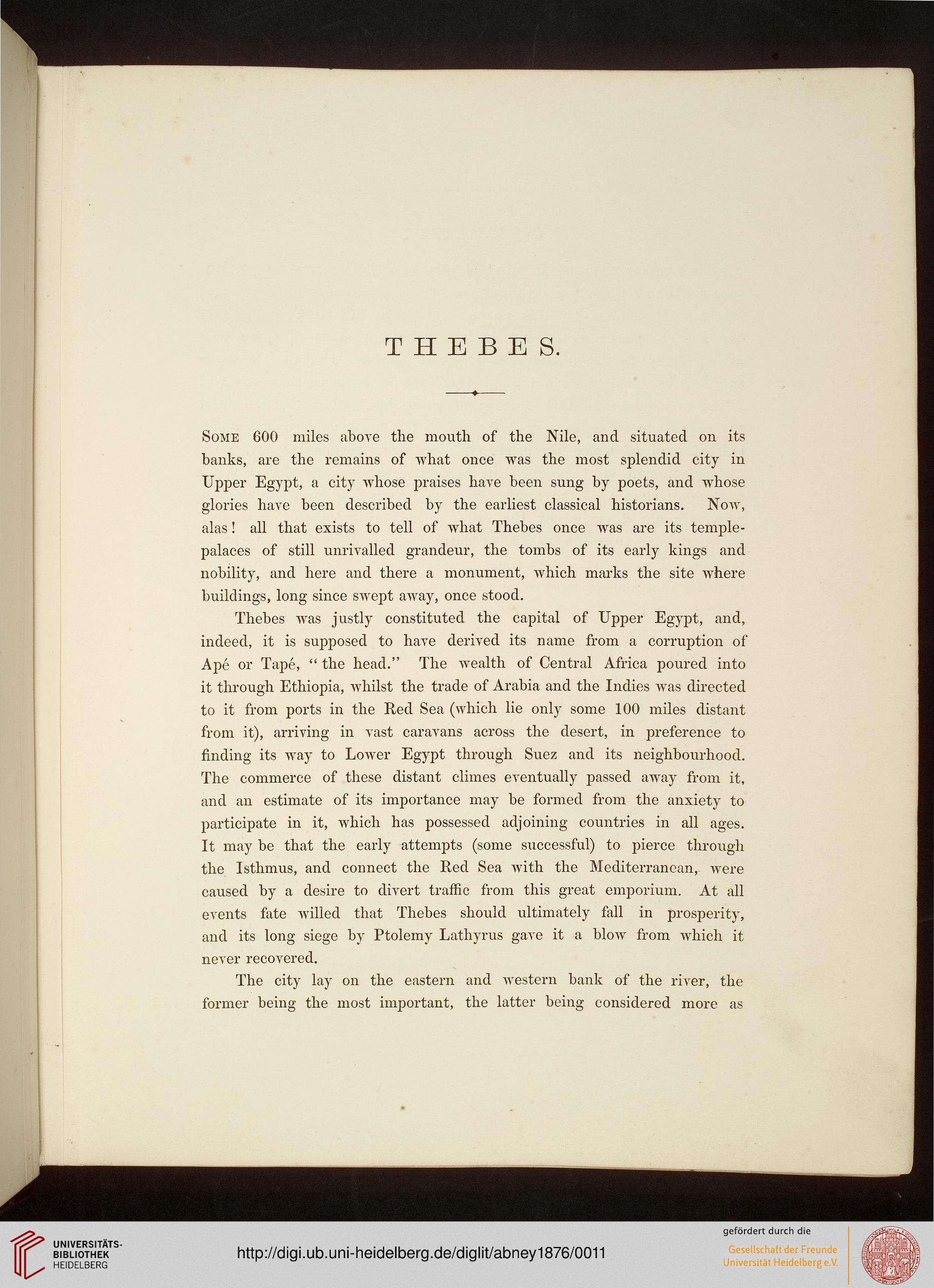THEBES.
Some 600 miles above the mouth of the Nile, and situated on its
banks, are the remains of what once was the most splendid city in
Upper Egypt, a city whose praises have been sung by poets, and whose
glories have been described by the earliest classical historians. Now,
alas! all that exists to tell of what Thebes once was are its temple-
palaces of still unrivalled grandeur, the tombs of its early kings and
nobility, and here and there a monument, which marks the site where
buildings, long since swept away, once stood.
Thebes was justly constituted the capital of Upper Egypt, and,
indeed, it is supposed to have derived its name from a corruption of
Ape or Tape, " the head." The wealth of Central Africa poured into
it through Ethiopia, whilst the trade of Arabia and the Indies was directed
to it from ports in the Red Sea (which lie only some 100 miles distant
from it), arriving in vast caravans across the desert, in preference to
finding its way to Lower Egypt through Suez and its neighbourhood.
The commerce of these distant climes eventually passed away from it,
and an estimate of its importance may be formed from the anxiety to
participate in it, which has possessed adjoining countries in all ages.
It may be that the early attempts (some successful) to pierce through
the Isthmus, and connect the Red Sea with the Mediterranean, were
caused by a desire to divert traffic from this great emporium. At all
events fate willed that Thebes should ultimately fall in prosperity,
and its long siege by Ptolemy Lathyrus gave it a blow from which it
never recovered.
The city lay on the eastern and western bank of the river, the
former being the most important, the latter being considered more as
Some 600 miles above the mouth of the Nile, and situated on its
banks, are the remains of what once was the most splendid city in
Upper Egypt, a city whose praises have been sung by poets, and whose
glories have been described by the earliest classical historians. Now,
alas! all that exists to tell of what Thebes once was are its temple-
palaces of still unrivalled grandeur, the tombs of its early kings and
nobility, and here and there a monument, which marks the site where
buildings, long since swept away, once stood.
Thebes was justly constituted the capital of Upper Egypt, and,
indeed, it is supposed to have derived its name from a corruption of
Ape or Tape, " the head." The wealth of Central Africa poured into
it through Ethiopia, whilst the trade of Arabia and the Indies was directed
to it from ports in the Red Sea (which lie only some 100 miles distant
from it), arriving in vast caravans across the desert, in preference to
finding its way to Lower Egypt through Suez and its neighbourhood.
The commerce of these distant climes eventually passed away from it,
and an estimate of its importance may be formed from the anxiety to
participate in it, which has possessed adjoining countries in all ages.
It may be that the early attempts (some successful) to pierce through
the Isthmus, and connect the Red Sea with the Mediterranean, were
caused by a desire to divert traffic from this great emporium. At all
events fate willed that Thebes should ultimately fall in prosperity,
and its long siege by Ptolemy Lathyrus gave it a blow from which it
never recovered.
The city lay on the eastern and western bank of the river, the
former being the most important, the latter being considered more as




